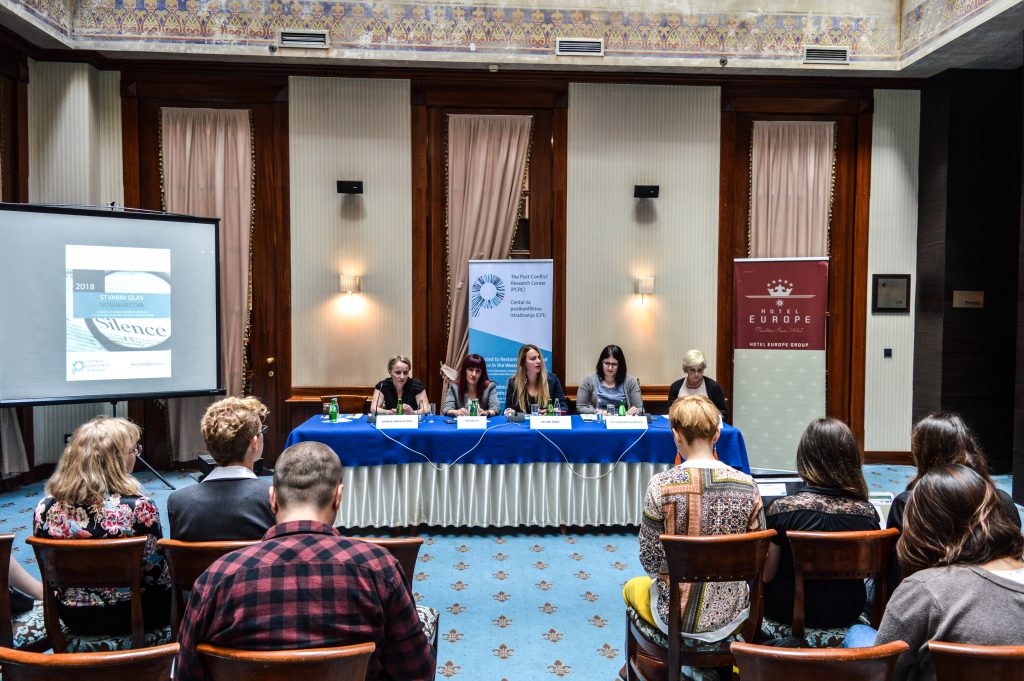
The Post-Conflict Research Center (PCRC) officially presents its research on the state of media freedom in 17 local BiH communities.
The Post-Conflict Research Center (PCRC) officially presents its research on the state of media freedom in 17 local BiH communities.
The report was created as part of the research project “Real Voice of Journalism”. The project aims to improve the overall status of journalists and media activists and to prevent further derogations and violations of freedom of speech in BiH. This research has been conducted over a nine-month timeframe by the Post-Conflict Research Center (PCRC) in cooperation with the Balkan Investigative Reporting Network Bosnia and Herzegovina (BIRN BiH) and the WARM Foundation Sarajevo and has centered on working with local journalists to reveal the on-the-ground realities they must face in their efforts to create impartial, objective, and relevant content.
The project is funded by the European Union through the small grants programme “Protecting Media Freedom and Freedom of Expression in the Western Balkans” implemented by the Croatian Journalists’ Association as part of the regional project “Western Balkan’s Regional Platform for Advocating Media Freedom and Journalists’ Safety”. This regional platform is a product of the partnership of six regional journalists’ associations – Independent Journalists’ Association of Serbia (IJAS), Association of BH Journalists (BHJ), Croatian Journalists’ Association (CJA), Association of Journalists of Kosovo (AJK), Association of Journalists of Macedonia (AJM), and Trade Union of Media of Montenegro (TUMM).
The presentation of the official findings took place in Hotel Europe (Sarajevo) on 18 May 2018. Panelists included Marija Arnautović (Radio Free Europe), Borka Rudić (Association of BH Journalists), Erna Mačkić (BIRN BiH), Lejla Turčilo (Faculty of Political Sciences, University of Sarajevo), Tatjana Milovanović (PCRC), and Velma Šarić (PCRC).
Download the full report here.






